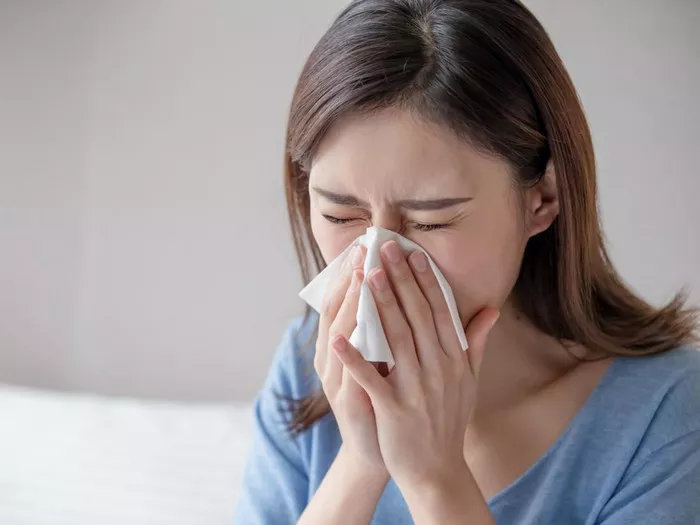Allergic rhinitis, often referred to as hay fever, is a common condition affecting millions of people worldwide. It is characterized by symptoms such as sneezing, runny nose, itchy eyes, and nasal congestion. Understanding how many days allergic rhinitis will last can help sufferers better manage their symptoms and seek appropriate treatment. This article will explore the various factors influencing the duration of allergic rhinitis, typical symptom duration, and strategies for relief.
Understanding Allergic Rhinitis
What Is Allergic Rhinitis?
Allergic rhinitis is an inflammation of the nasal passages caused by an allergic reaction to airborne substances, such as pollen, dust mites, pet dander, and mold spores. When these allergens are inhaled, the immune system overreacts, leading to the release of histamines and other chemicals, which cause the characteristic symptoms.
Types of Allergic Rhinitis
There are two main types of allergic rhinitis:
Seasonal Allergic Rhinitis: Commonly known as hay fever, this type is triggered by outdoor allergens like pollen from trees, grasses, and weeds. It typically occurs during specific seasons when these plants pollinate.
Perennial Allergic Rhinitis: This type occurs year-round and is triggered by indoor allergens such as dust mites, pet dander, and mold.
Factors Influencing the Duration of Allergic Rhinitis
Severity of Allergic Reaction
The severity of an individual’s allergic reaction plays a significant role in determining how long allergic rhinitis lasts. Those with mild allergies may experience symptoms for a shorter duration, while individuals with severe allergies may suffer for a more extended period.
Type of Allergen
The type of allergen causing the reaction also affects the duration of allergic rhinitis. Seasonal allergens, such as pollen, typically cause symptoms during specific times of the year, while perennial allergens, like dust mites, can cause symptoms year-round.
Exposure to Allergens
The duration of allergic rhinitis is directly related to the duration of exposure to the allergen. Continuous exposure to the allergen will prolong the symptoms, while reducing or eliminating exposure can help shorten the duration.
Environmental Factors
Environmental factors, such as weather conditions and pollution levels, can influence the duration of allergic rhinitis. For example, windy days can spread pollen more widely, potentially prolonging symptoms for those with pollen allergies.
Typical Duration of Allergic Rhinitis
Seasonal Allergic Rhinitis
Seasonal allergic rhinitis typically lasts for as long as the allergen is present in the environment. For example, tree pollen allergies may cause symptoms in the spring, while grass pollen allergies are more common in late spring and summer. Weed pollen allergies, such as ragweed, usually occur in late summer and fall. The duration of symptoms can range from a few weeks to several months, depending on the length of the pollen season.
Perennial Allergic Rhinitis
Perennial allergic rhinitis can last year-round, as the allergens causing the reaction are present continuously. However, the severity of symptoms may fluctuate throughout the year, often worsening during certain seasons due to changes in humidity, temperature, or indoor allergen levels.
Episodic Allergic Rhinitis
Episodic allergic rhinitis occurs when an individual is exposed to an allergen sporadically. This type of allergic rhinitis may last only a few days, depending on the duration of exposure and the individual’s sensitivity to the allergen.
Managing Allergic Rhinitis
Avoiding Allergens
One of the most effective ways to manage allergic rhinitis is to avoid exposure to the allergens that trigger symptoms. Strategies for avoiding allergens include:
Pollen: Stay indoors on high pollen count days, keep windows closed, and use air conditioning to filter indoor air.
Dust Mites: Use allergen-proof bedding covers, wash bedding in hot water weekly, and reduce indoor humidity levels.
Pet Dander: Keep pets out of bedrooms, bathe pets regularly, and use HEPA air purifiers to reduce dander levels.
Mold: Fix leaks promptly, use dehumidifiers in damp areas, and clean moldy surfaces with appropriate cleaning agents.
Medications for Symptom Relief
Several over-the-counter and prescription medications can help relieve the symptoms of allergic rhinitis. These include:
Antihistamines: These medications block the action of histamines, reducing symptoms such as sneezing, itching, and runny nose. Examples include loratadine, cetirizine, and diphenhydramine.
See Also: Why Is Fexofenadine Not Working?
Nasal Corticosteroids: These sprays reduce inflammation in the nasal passages, alleviating congestion and other symptoms. Examples include fluticasone, budesonide, and mometasone.
Decongestants: These medications relieve nasal congestion by shrinking swollen blood vessels in the nasal passages. Examples include pseudoephedrine and phenylephrine.
Leukotriene Receptor Antagonists: These medications block the action of leukotrienes, chemicals involved in the allergic response. Montelukast is a common example.
Immunotherapy
For individuals with severe or persistent allergic rhinitis, immunotherapy (allergy shots or sublingual tablets) may be an effective long-term treatment option. Immunotherapy involves gradually exposing the individual to increasing amounts of the allergen to desensitize the immune system and reduce the severity of allergic reactions over time.
Home Remedies and Lifestyle Changes
In addition to medications and immunotherapy, several home remedies and lifestyle changes can help manage allergic rhinitis symptoms:
Saline Nasal Irrigation: Rinsing the nasal passages with a saline solution can help remove allergens and reduce congestion.
Humidifiers: Using a humidifier can help keep nasal passages moist and reduce irritation, particularly in dry indoor environments.
Diet and Hydration: Staying hydrated and consuming a healthy diet rich in anti-inflammatory foods can support the immune system and reduce the severity of allergic reactions.
Stress Management: Stress can exacerbate allergic symptoms, so practicing stress-reducing techniques such as yoga, meditation, and deep breathing exercises can be beneficial.
When to See a Doctor
Persistent or Severe Symptoms
If allergic rhinitis symptoms persist despite over-the-counter treatments and lifestyle changes, it is essential to see a doctor. Persistent symptoms can interfere with daily activities and reduce the quality of life, and a healthcare professional can help develop a more effective treatment plan.
Complications
Allergic rhinitis can sometimes lead to complications such as sinusitis, ear infections, or asthma. If symptoms worsen or new symptoms develop, seeking medical advice is crucial to prevent and manage these complications effectively.
Identifying Specific Allergens
A doctor can perform tests to identify specific allergens causing the symptoms, which can help tailor treatment and avoidance strategies more effectively. Common tests include skin prick tests and blood tests to measure specific allergen antibodies.
Conclusion
The duration of allergic rhinitis varies depending on several factors, including the type and severity of the allergy, the specific allergen involved, and the individual’s exposure to the allergen. Seasonal allergic rhinitis typically lasts for weeks to months, depending on the pollen season, while perennial allergic rhinitis can persist year-round. Effective management strategies, including avoiding allergens, using medications, and considering immunotherapy, can help reduce symptoms and improve quality of life. If symptoms persist or complications arise, seeking medical advice is essential for appropriate treatment and care.
[inline_related_posts title=”You Might Be Interested In” title_align=”left” style=”list” number=”6″ align=”none” ids=”10533,10497,10479″ by=”categories” orderby=”rand” order=”DESC” hide_thumb=”no” thumb_right=”no” views=”no” date=”yes” grid_columns=”2″ post_type=”” tax=””]



































